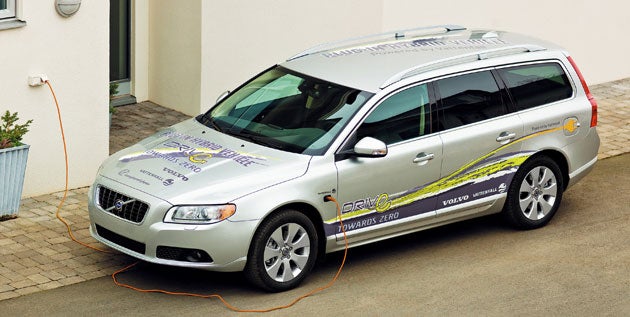Volvo plans plug-in diesel hybrids for 2012

Your support helps us to tell the story
From reproductive rights to climate change to Big Tech, The Independent is on the ground when the story is developing. Whether it's investigating the financials of Elon Musk's pro-Trump PAC or producing our latest documentary, 'The A Word', which shines a light on the American women fighting for reproductive rights, we know how important it is to parse out the facts from the messaging.
At such a critical moment in US history, we need reporters on the ground. Your donation allows us to keep sending journalists to speak to both sides of the story.
The Independent is trusted by Americans across the entire political spectrum. And unlike many other quality news outlets, we choose not to lock Americans out of our reporting and analysis with paywalls. We believe quality journalism should be available to everyone, paid for by those who can afford it.
Your support makes all the difference.Volvo has said it wants to introduce plug-in hybrid cars from 2012.
Standard hybrid cars have both an electric motor and an internal combustion engine. Energy that would normally be lost under braking is directed towards recharging batteries which are then used to power the electric motor, which kicks in to support the combustion engine under acceleration. Some hybrids are able to run for very short distances at low speeds on battery power alone.
Plug-in hybrids, which as their name suggests, can be charged from the mains while the car is stationary, are able to spend a much greater proportion of a given journey running on electric power; Volvo says that its plug-in hybrids will be able to run for up to about 30 miles on batteries alone. Only beyond that distance, which, according to Volvo, covers the daily needs of about 75% of European drivers, does the combustion engine – in this case, a diesel – play a part.
A diesel plug-in hybrid can be an exceptionally economical and ecologically friendly car but the precise advantages depend on a number of factors, in particular, which fuel is used to generate electricity at the power station, but Volvo thinks its cars will achieve a range of 745 miles while emitting as little as 50g/km of CO2 and consuming as little as 148.6mpg.
Join our commenting forum
Join thought-provoking conversations, follow other Independent readers and see their replies
Comments